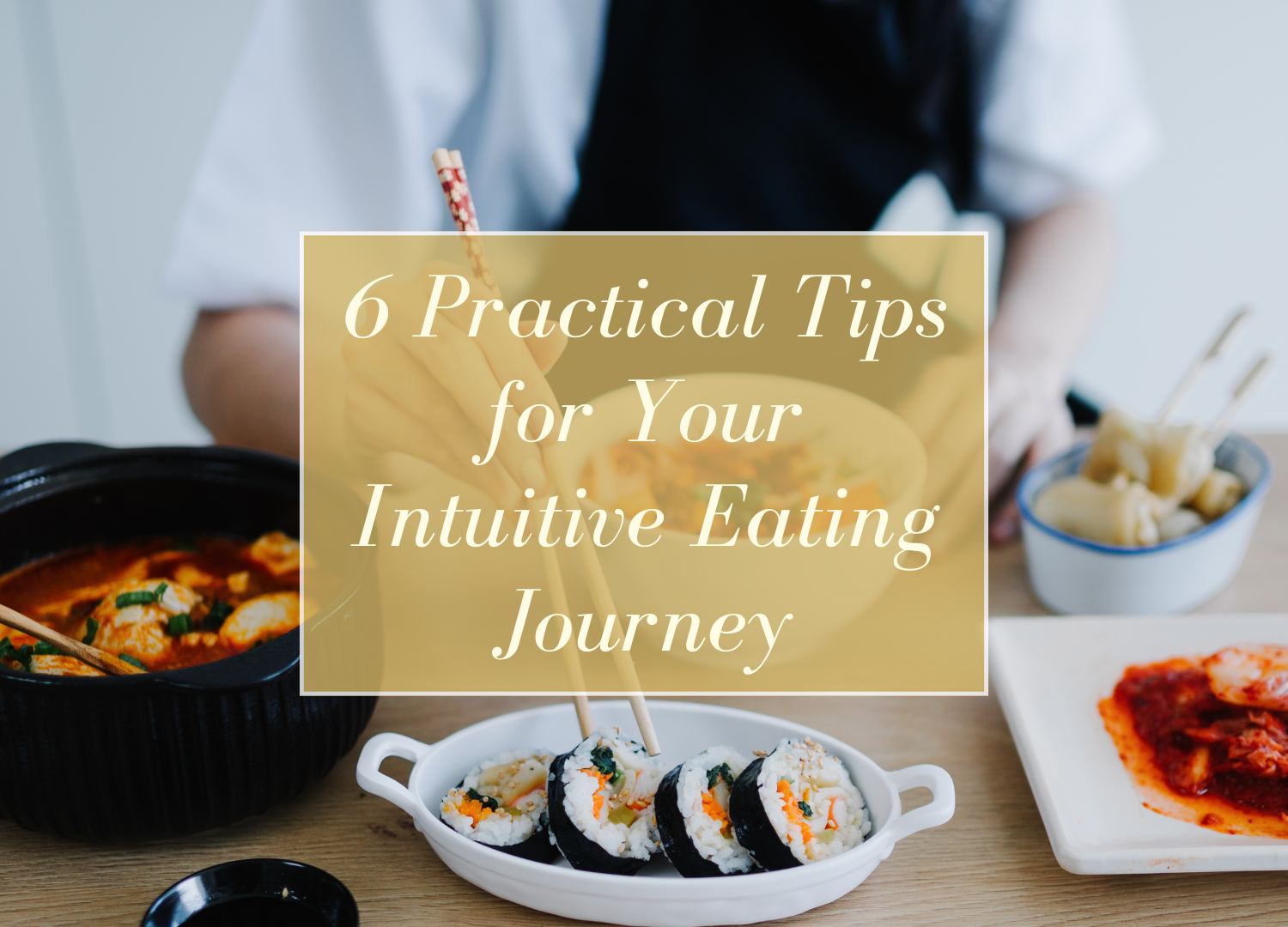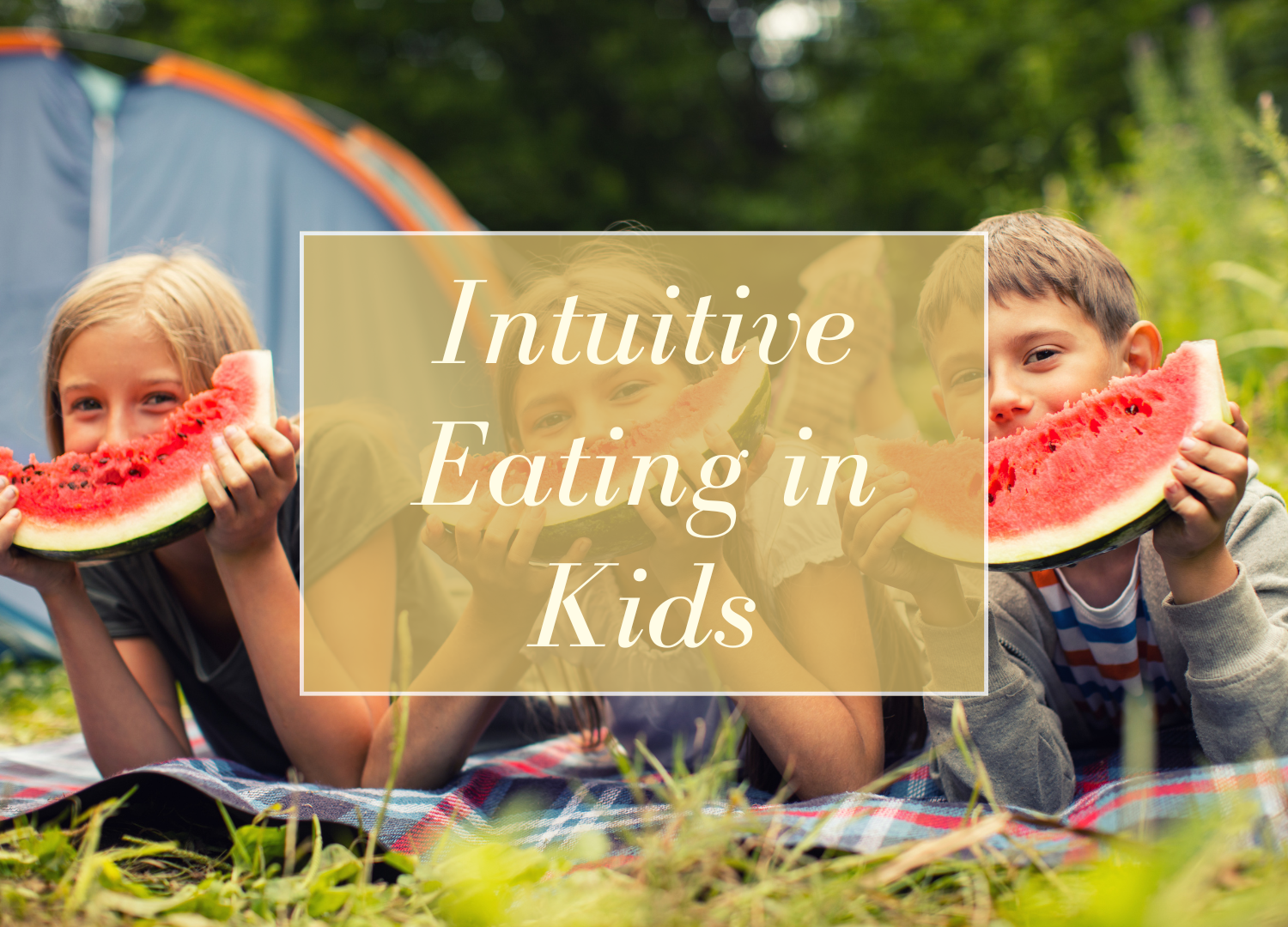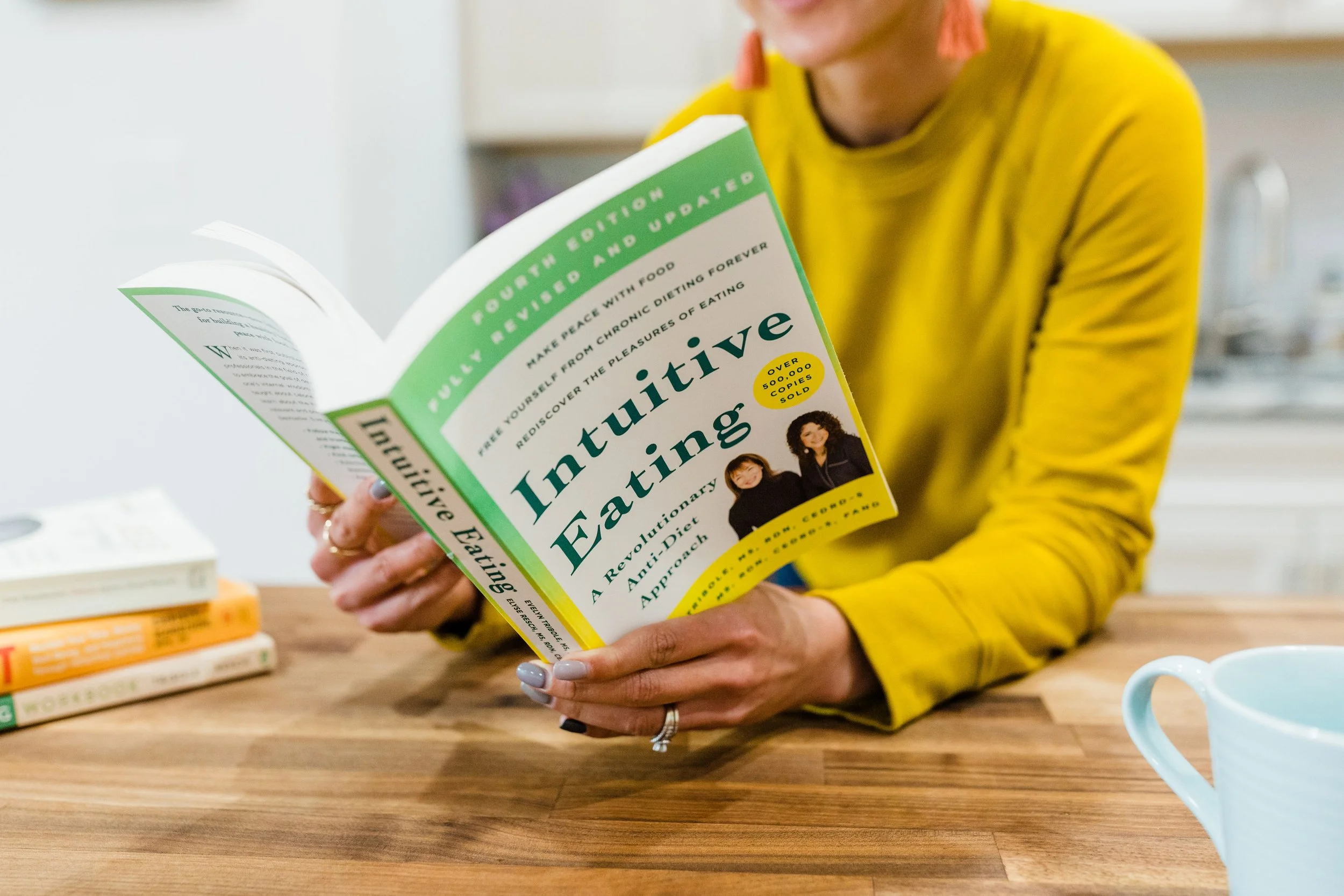Ask the Team: What is Set Point Theory?
Set Point Theory posits that our body has a weight range where it feels most comfortable and will always work to maintain. This range is where our bodies feel most comfortable, where all our systems function properly, and where weight is maintained without much effort on our end (read: no dieting). If our weight dips below the range, our body will adjust metabolism and appetite to bring us back to our set point/set range. Your set point range is generally around 10-20 pounds.
The Intuitive Eaters Bill of Rights
While the song says, “It’s the most wonderful time of the year!”, it might not always feel that way. Especially when it comes to food, body, and exercise. Whether you have a challenging relationship with these three areas or a positive one, it can be tricky to navigate holiday meals and festivities. Today, we are sharing the Intuitive Eaters Bill of Rights and hope that it can help give you some insights into how to advocate for yourself during this season.
What is Food Habituation?
Have you ever heard the phrase, food habituation? If you work with a practitioner who practices Intuitive Eating, if you practice it yourself, or if you are interested in practicing Intuitive Eating someday, you have might heard this phrase. But what does it mean? Check out today’s post to learn more!
8 Ways to Challenge the Food Police
Do you listen to the food police? Have you ever labeled foods as “good” or “bad”? Have you ever wondered at what point these negative internal thoughts around eating and food became ingrained in your psyche? Today, Christine Soviak, RD is talking all about the food police and sharing 8 ways to challenge that voice. Take it away, Christine!
5 Things You Need to Know About Overeating
Weekends tend to be very chaotic for people when it comes to eating. Do you struggle with overeating? Let me guess when you overeat you beat yourself up for it? Feeling extra full or even just a little full has the ability to ruin your mood and maybe your day? I am hoping what I have to say about overeating with ease your mind a bit and offer you a better understanding of why you are overeating. Here are 5 things you need to know about “over” eating.
10 Ways You Might Be Restricting Without Realizing It
You might have heard that restriction is the number one driving force behind feeling out of control with food. Feeling out of control with food can play out in various ways such as binge eating until you feel physically uncomfortable, feeling like you can't keep certain foods in the house because you will eat it ALL (GASP), and/or thinking about food all day. Not to mention did you know that restiction of food mimics addiction? Yes, read that again. So generally the people that have rules around food and/or are micromanaging food feel addicted to food. But what does it mean to “restrict”?
5 Signs You Have a Positive Relationship with Food
Here at Collaborative Counseling and Nutrition we are passionate about helping others create a positive relationship with food and body. We talk a lot about what an unhealthy relationship with food looks like but do you know what a healthy/positive relationship with food looks like?
6 Practical Tips for Your Intuitive Eating Journey
Today’s post is inspired by my Intuitive Eating coaching clients. While the Intuitive Eating principles can appear pretty straightforward in the books, in practice, it’s not always smooth sailing. Grab 6 of my favorite practical tips for making your intuitive eating journey just a little easier.
5 Ways to Shift Rigid Thinking
Today, we are talking about different ways of rigid thinking that can show up in our relationship with food and ways to shift to more flexible and fluid ways of thinking.
Look Who's Talking: Understanding Dieting and Ally Voices
Does it ever feel like you have several voices in your head telling you what you should and shouldn’t be doing when it comes to your food choices? When practicing Intuitive Eating, it can be really difficult to make sense of the different voices that pop up and whether they are helpful or hurtful. Today, we are diving into some common voices that you might encounter and whether they are helpful or hurtful.
What is the Satisfaction Factor and How to Discover It
What foods do you enjoy? Are you a fan of salty and sweet things? Perhaps you adore a soft, fluffy croissant with a black, slightly bitter coffee. Or, maybe a warm, velvety soup paired with crispy crackers and a crunchy, but delicate salad is your idea of the perfect lunch. Today, we are discussing the hub of the Intuitive Eating wheel, Discovering the Satisfaction Factor. Let’s dive in.
Intuitive Eating in Kids
Parenting doesn’t come without its challenges, and raising kids to be healthy eaters is of course something parents strive for. A lot of the time, unfortunately, teaching kids to eat “healthy” can easily get intermixed with messages from diet culture. This well-meaning approach may not only make kids start to distrust their internal signals but can also hurt their ability to be an Intuitive Eater as an adult. This especially can become a problem as foods are labeled “good” vs “bad”, kids are forced to finish a certain “healthy” food to earn dessert, or when they get rewarded for clean plates. So how exactly do we raise our kids to be intuitive eaters, while encouraging eating habits that promote good health? Let’s unpack that today!
What is Interoceptive Awareness?
Interoceptive awareness is the process of receiving, accessing, and evaluating internal bodily signals (1). This includes signals related to mood changes, hunger, thirst, temperature, and aches or pains.
It integrates motivations, emotions, internal organ sensations, and associated thought patterns and reactions. This is complicated stuff that our body is always doing, but you may not be aware of it.
How to Become an Intuitive Eater
Have you ever wondered how to become an Intuitive Eater? The principles seem easy enough to understand, but in diet culture, it can also be really easy to turn the Intuitive Eating principles into a diet. Today, we are unpacking how to become an Intuitive Eater and addressing a variety of myths, barriers, and important things to know.
Understanding the Different Types of Hunger
Did you know that there are multiple types of hunger? Honoring hunger is an important principle in the Intuitive Eating framework and it discusses 4 different types of hunger that we can experience. In the past, we’ve discussed how to honor your hunger, but today we are diving into the different types of hunger and how to distinguish between the different types.
How to Manage Anxiety Around Food
Anxiety is often co-occurring with eating disorders or disordered eating. Feeling anxious around food can happen for a variety of reasons. Today, we want to share some ways to manage feeling anxious around food.
Creating Your Own Joyful, Intuitive Movement Practice
Joyful, intuitive movement aims to remove guilt, shame, rules, punishment, and body manipulation and replace it with pleasure, joy, intuition, and freedom. It comes from a place of self-care rather than self-control.
10 Tips for Creating a Self-Care Practice
Self-care has become a buzzword over the last handful of years. From promoting bubble baths to treating yourself to an expensive coffee drink, and more it can be difficult to know what self-care actually means and what it can do for us. We want to share 10 tips for creating your own self-care practice!
What is Intuitive Eating?
Intuitive Eating is an anti-diet framework for helping you tune into and honor your body’s needs. Today’s post covers the difference between a diet approach and an intuitive eating approach, provides insights into each principle, and more!




















